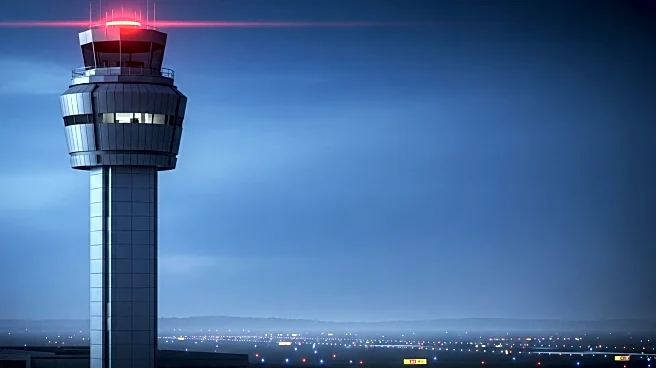What is the story about?
What's Happening?
A cyberattack has disrupted check-in and boarding systems at several major European airports, including Brussels, Berlin's Brandenburg, and London's Heathrow. The attack targeted Collins Aerospace's MUSE software, which is used for electronic customer check-in and baggage drop. As a result, manual check-in operations were implemented to mitigate the impact. Collins Aerospace, a subsidiary of RTX Corp., is actively working to resolve the issue. The attack has led to flight cancellations, redirections, and delays, although the disruption at Heathrow has been minimal. Experts are uncertain about the perpetrators, suggesting possibilities ranging from hackers to state actors.
Why It's Important?
The cyberattack highlights vulnerabilities in the airline industry's reliance on third-party digital systems. Such disruptions can have significant economic impacts, affecting airlines, airports, and passengers. The aviation industry is increasingly targeted by cybercriminals due to its interconnected systems. This incident underscores the need for enhanced cybersecurity measures to protect critical infrastructure and prevent widespread disruptions. The attack's ripple effect across multiple airports demonstrates the potential for significant operational and financial consequences.
What's Next?
Collins Aerospace is working to restore full functionality to its systems. Airports are advising travelers to check their flight status and are apologizing for the inconvenience. The incident may prompt airlines and airports to reassess their cybersecurity strategies and invest in more robust defenses. Authorities and cybersecurity experts will likely investigate the attack to identify the perpetrators and prevent future incidents. The aviation industry may face increased scrutiny regarding its cybersecurity practices.
Beyond the Headlines
The attack raises ethical and legal questions about the responsibility of third-party vendors in safeguarding critical systems. It also highlights the cultural shift towards digital reliance in the aviation industry, which may necessitate changes in operational protocols. Long-term, this incident could drive innovation in cybersecurity solutions tailored to the unique needs of the airline industry.















